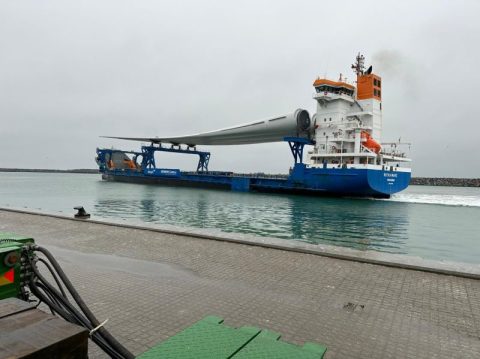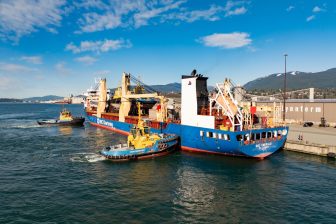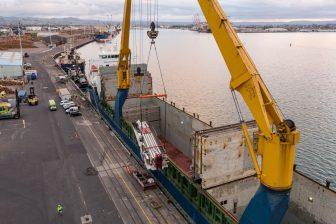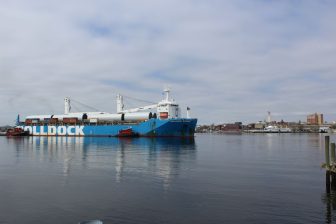
deugro: MPP market downturn to be taken with a pinch of salt
Over the last quarter there were some significant changes in the MPP market, with charter rates heading down and cooling of ocean freight rates in almost all trade lanes. In its latest issue of Connect, deugro notes that the negative trend in MPP charter rates can be observed through the Drewry and Toepfer Transport indices.
Northern Europe and the Americas are affected the most, but Asia, which has been a very strong trading area for almost the last two years, is also showing signs of weakening. The reasons for this can only be speculated at present, but it seems that the cargo volumes are decreasing due to delays in production, which in turn can be attributed to higher energy costs, higher material costs and the availability of certain materials in general, as well as the continuing restrictions and disruptions imposed by COVID-19 mandates.
It can be observed that many projects currently being executed are sometimes significantly behind the original production and shipping plans in terms of the volumes to be shipped.
The usual end-of-year rally also seems to be almost absent this year or to have weakened considerably. As a result, some MPP shipping companies are currently offering much more competitive rates than two months ago, the availability of space on MPP ships has likewise become much more relaxed and larger cargo volumes can also be placed at very short notice. It is difficult to predict how the trend will develop.
deugro notes that there are currently a number of major projects ongoing, especially in the oil and gas and renewable energy sectors, and the outlook for 2023 is very positive for the project market and thus also for MPP carriers. Therefore, the current market downturn should certainly be taken with a pinch of salt, because theoretically a very high utilisation can be expected in the MPP sector for the coming year, which should then lead to a short term increase in charter and ocean freight rates again.
How will the MPP sector tackle the IMO hurdle?
Another important and now also increasingly discussed topic is the new IMO regulations on the reduction of greenhouse gases through the transport of goods on ships. From the beginning of 2023, all merchant ships of all types will be classified in efficiency classes and the owners or technical managers and operators will not only have to declare the current vessel emissions, but will also be asked to pay accordingly into an Emission Trading System Allowances scheme.
Currently, a metric ton of CO2 emissions is charged at around $90. These costs will inevitably have to be passed on to consumers, i.e. the cargo owners. However, as MPP ships are used on a wide variety of routes due to the nature of the general cargo business and are also utilised very differently, the MPP shipowners are currently still finding it very difficult to make concrete statements on how this issue is to be dealt with and how the additional costs incurred can be charged to the cargo on board in a transparent and fair manner.
deugro is currently in talks with several shipowners and expects to be able to make more precise statements on the matter soon.
You just read one of our premium articles free of charge
Register now to keep reading premium articles.




